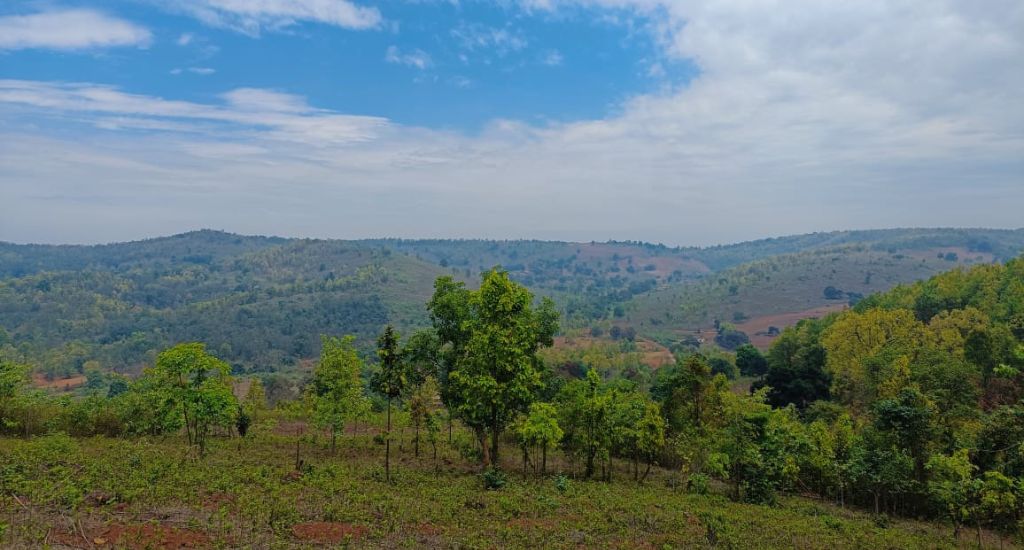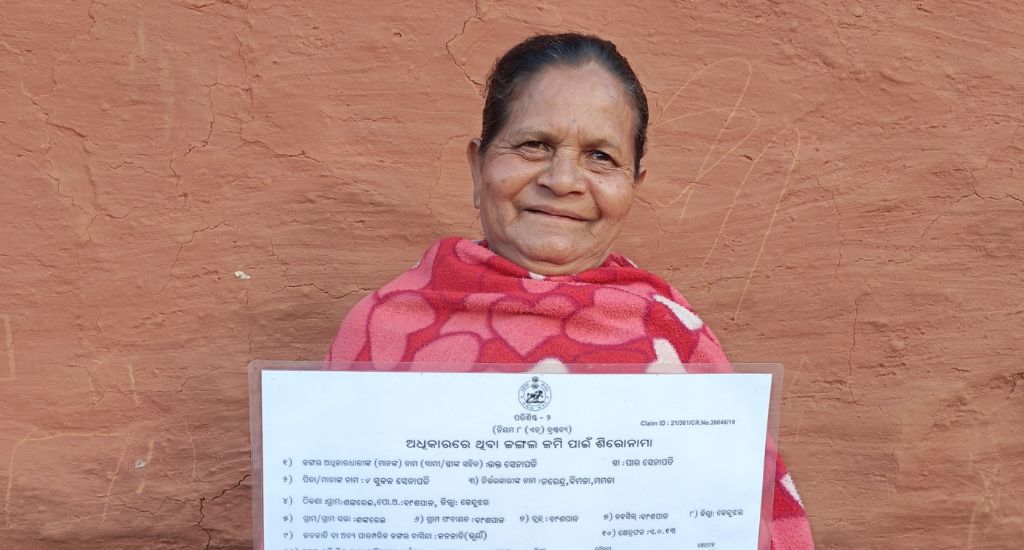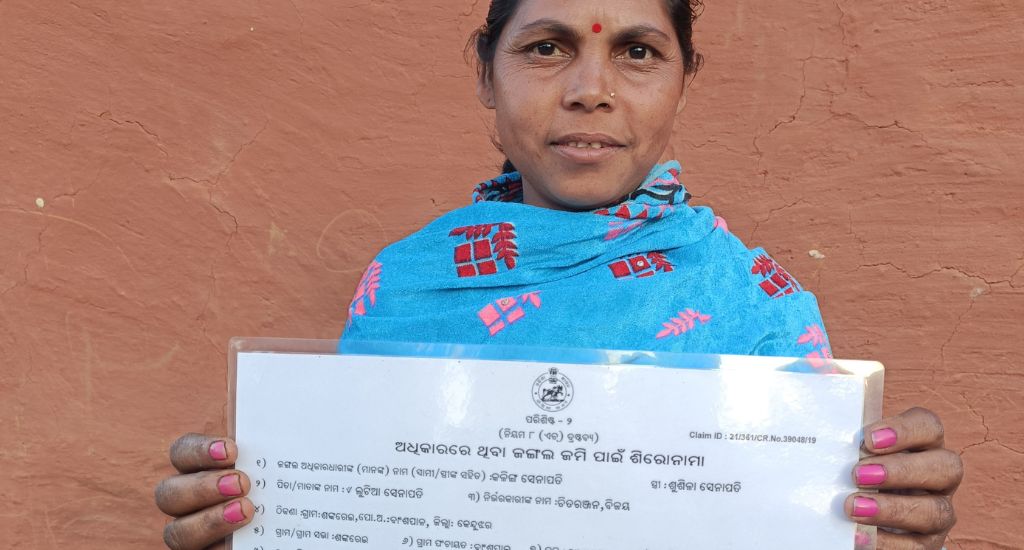
Women shed ‘forest encroachers’ tag, turn land owners
Dubbed as encroachers in the forest land they tilled, the women of a village in Odisha claim their land rights and get their name recorded on the property document.

Dubbed as encroachers in the forest land they tilled, the women of a village in Odisha claim their land rights and get their name recorded on the property document.
Forest is one of the common resources protected and managed by communities. But the controlling power over those lands lies with a few people, mostly those in the governing body. When kings ruled the land, the forest belonged to them. People who stayed there for generations had the permission to stay there in return for supply of forest produce to the king.
When the British came, they first colonised the forest resources and set up the forest department in the name of scientific management of the forest resources.
After Independence, the government of India did not amend the old rules. As a result, the forest dwellers became encroachers on their own land. After almost six decades, the government recognised the injustice towards these forest dwellers and introduced the Forest Rights Act, 2006.
Vanardihi is a small hamlet in Sankarei village that falls under Banspal gram panchayat in Banspal tehsil of Kendujhar district in Odisha. With 15 and 17 households respectively, Mundas and Bhuinas form the majority communities here.

The village is surrounded by hillocks and there is hardly any plain land in the hamlet. The residents depend on farming around the hillocks and forest resources for their livelihood. Because of lack of water, they could cultivate only during the monsoon. During the other seasons, sometimes they got work under the Mahatma Gandhi National Rural Employment Guarantee Scheme (MGNREGS) or remained dependent on the forests.
Most of the villagers were landless. They did not have patta even for their houses.
Also Read | Cut off from forests, Odisha’s tribe struggles to survive
In 2015, when the villagers came to know about individual forest rights (IFR) which will help them avail extra 50 days under MGNREGS they wanted to claim their land under the act. But they had no idea about the process.
The villagers approached the concerned officials in the administrative block, who visited Vanardihi and found that the area the villagers staked their claim on was not forest land.
The community then had a meeting in the village and decided to claim another patch of land that they had been cultivating for a long time and submitted the claim to the concerned authorities at the block.
But the villagers received no word from the officials even after over two years of filing the claim. In the meantime, Foundation for Ecological Security (FES) started working in the area in 2018. During a meeting with FES, the villagers brought up the issue of their claim.
When the FES representative visited the office, it was found that the process was stalled due to some documentation errors. After getting this information, Anjali, the panchayat resource person, informed the villagers about this issue.
Anjali decided to get the women of the village involved in the claim process because the men are mostly away in the forest during the day, and traveling to the village at night for verification posed the risks of encounters with wild animals.

Within a few months Anjali rectified the documentation errors and submitted the form to the FRA cell and the government officials visited the village for verification. With this collective action of the village, government and the NGO, 29 families of this village received patta for their land. And most importantly the name of the female head of the family was mentioned on the patta.
Also Read | Jungle Warriors: Odisha women set up jungle huts to save forests
In a village where people did not even have land rights, women’s names mentioned on the land document is a big step towards a better future. The villagers are happy as they are no longer seen as encroachers and are eligible for 150 days of work under MGNREGA, which will uplift their economic condition. They are also planning to leverage land development work from MGNREGA which will eventually recharge the soil and increase the water surface in the area.
“Now we don’t need to fear anybody to cultivate our piece of land which our ancestors have been farming for ages. The piece of paper where my name is also mentioned gives me an identity and dignity,” said Sushila Senapati, one of the women who now has land in her name.
The lead image at the top shows the forests and hillocks around Vanardihi hamlet in Nayakote tehsil of Kendujhar district in Odisha (Photo by Biswabijayini Mohanty)
Kartik Chandra Prusty is a team leader at Foundation for Ecological Security (FES), Kendujhar. Saswatik Tripathy is a senior project manager and Biswabijayini Mohanty is a field supervisor at FES.